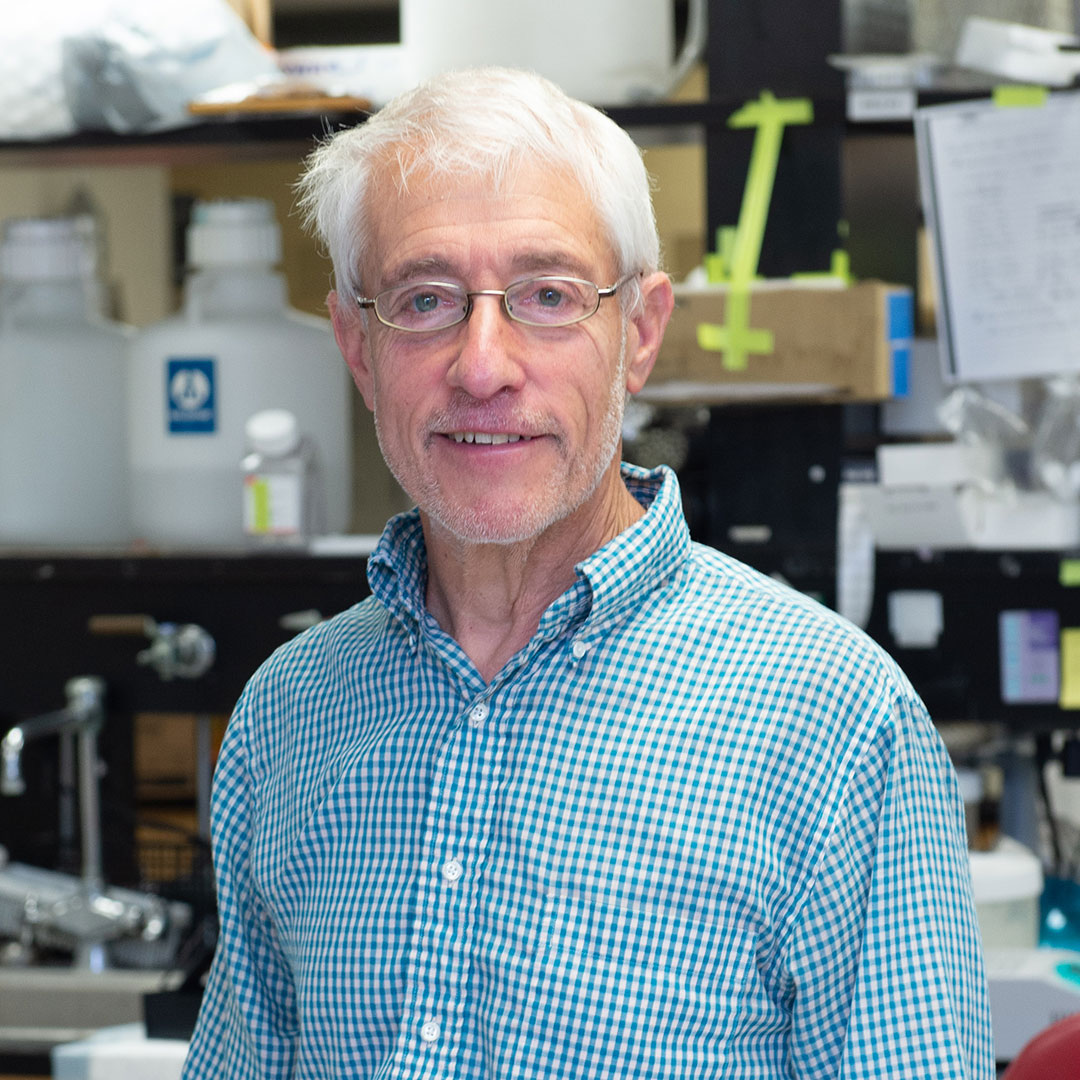Scientists, Media Turn to Iowa's Coronavirus Expert
 Photo: SUSAN MCCLELLEN/UI HEALTH CARE
Coronavirus expert Stanley Perlman researches COVID-19 in his lab at the University of Iowa.
Photo: SUSAN MCCLELLEN/UI HEALTH CARE
Coronavirus expert Stanley Perlman researches COVID-19 in his lab at the University of Iowa.
Scientists around the globe racing to find treatments and a vaccine for COVID-19 are building upon the work of Stanley Perlman, a University of Iowa researcher and one of the world's leading coronavirus experts.
Perlman—a UI Health Care physician and professor of microbiology and immunology at the Roy J. and Lucille A. Carver College of Medicine—has spent nearly 38 years studying coronaviruses, including those that caused the SARS and MERS outbreaks. None have been as widespread as the COVID-19 pandemic that has infected millions worldwide.
"Now that we've seen a major outbreak of a coronavirus, he's being called upon by the National Institutes of Health, the World Health Organization, and the news media, because he has great expertise and he's also a physician," says Paul McCray (81MD, 84R, 88F), one of Perlman's research collaborators who serves as a pediatric pulmonologist and the Roy J. Carver Chair in Pulmonary Research at the Carver College of Medicine. "He's our Tony Fauci."
A residency at Boston Children's Hospital—which included a period of training with pediatrician T. Berry Brazelton, who was one of the world's leading authorities on child development—inspired Perlman to combine his interests in infectious disease and pediatrics. Perlman's study of how viruses affect the neonatal brain led him to specialize in coronaviruses—rarely researched at the time.
Until recently, Perlman was one of only 10 full-time coronavirus virologists in the world. But since the COVID-19 pandemic, he has seen exponential growth in the amount of research taking place in his field. Perlman wrote an editorial for the New England Journal of Medicine in February to educate physicians about coronaviruses, and he's also quoted regularly on a range of COVID-19-related subjects by national media outlets such as The New York Times and ABC News. He also serves on the advisory committees for the FDA and CDC that give recommendations on the approval, distribution, and use of vaccines against the disease.
Now Perlman is using his expertise to bring hope to those with COVID-19. In 2007, he and McCray led a team of UI researchers in creating a genetically modified mouse susceptible to infection by SARS in order to study the coronavirus and its potential treatments. The Jackson Laboratory, the world's largest supplier of research mice, recently recreated and bred this UI-developed mouse model that scientists around the globe can use in their quest for effective therapies against COVID-19. The UI team has since created other mouse models valuable for understanding the virus and the immune system's response.
The Iowa team also recently collaborated with University of Georgia researchers to develop a vaccine that protects mice against MERS, which is closely related to the coronavirus that causes COVID-19. The scientists used an RNA virus harmless in humans as the delivery method for the vaccine—an approach that is now being used to create some human vaccines against the coronaviruses that cause MERS and COVID-19.
The lessons of SARS and MERS have already proven useful in fighting COVID-19. Scientists now know how coronaviruses hijack cells to replicate themselves and cause infection in humans. "We know a lot more than if we had started from scratch," says Perlman. "What's unique about [COVID-19] is that it's both highly transmissible and lethal."
While the novel coronavirus is less likely to cause the severity of illness of SARS or MERS, it often causes an upper-respiratory infection that makes it much more contagious than its predecessors. In comparison to the 8,000 cases of SARS and fewer than 3,000 cases of MERS to date, COVID-19 has multiplied at a feverishly high rate. "The last infection like this was [the Spanish flu] in 1918. It's a much bigger deal than ever before," says Perlman. "HIV was infectious, but it didn't tend to kill as quickly as COVID-19, so we had more time to develop interventions to treat people and prolong life."
With three coronavirus outbreaks in as many decades, it may be only a matter of time before the next great threat emerges. In an increasingly interconnected world, Perlman sees it as crucial for researchers, public health officials, and governments to prepare and stay ahead of any outbreaks. As he told faculty, staff, and students in the UI Department of Internal Medicine during a March webinar, "There are things we don't know that matter a lot."
